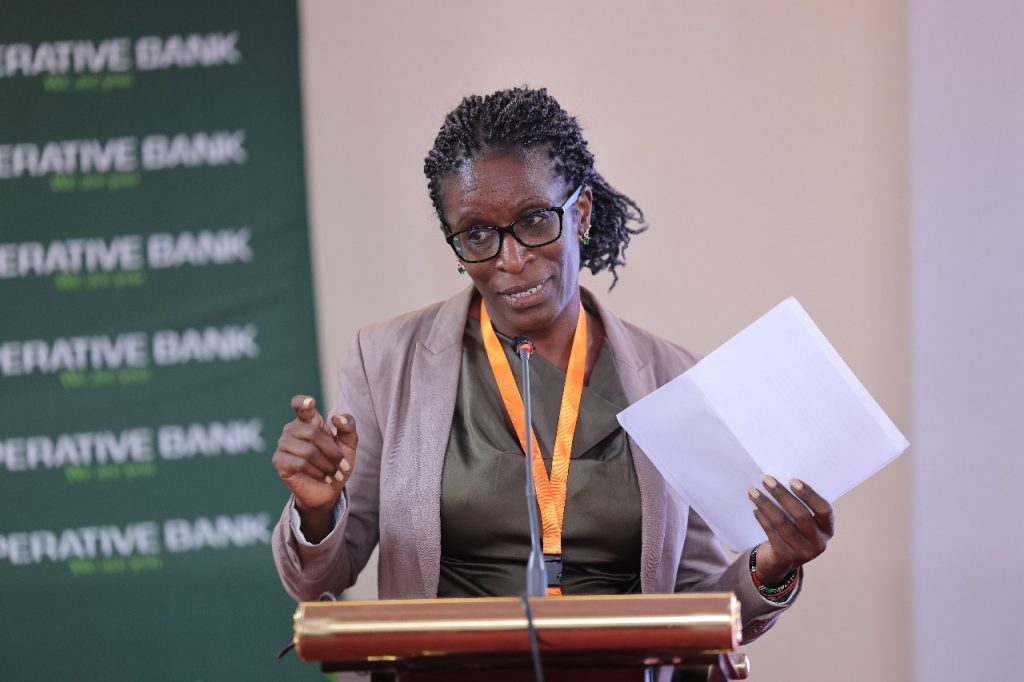Bʏ Mᴀʀʏ Mᴡᴇɴᴅᴇ
November 06, 2025
“Without this bridge, science remains on paper. With it, science becomes power.”

Among the most powerful messages at the 5th National Agribusiness Summit held at the Kenyatta International Convention Centre (KICC) in Nairobi, came from Jane Musindi, chairperson of Society of Crop Agribusiness Advisors of Kenya (SOCAA), whose stirring speech captured both the urgency and the promise of a new agricultural paradigm: one powered by agronomists bridging the gap between science and practice. Industry leaders, scientists, and policymakers gathered under one unifying call to transform Africa’s food systems into engines of climate resilience, productivity, and profit.
Science Means Nothing Until It Reaches the Field
In her address, Musindi reframed the role of agronomists not as mere advisors in the field but as the interpreters of science. Across the world, she noted, scientific breakthroughs are rapidly expanding what’s possible in agriculture: precision nutrient management, soil microbiome mapping, drought-tolerant and carbon-efficient crop varieties. But technology alone cannot transform livelihoods unless it is localized.
This is where the agronomist steps in; turning satellite imagery into planting decisions, converting climate models into water-use strategies, and simplifying complex research into practical training for farmers. “Agronomists are the ones who make climate-smart agriculture real,” she said. “They turn uncertainty into confidence and confusion into competence.”
It’s a message that resonated deeply with the summit’s theme of agribusiness transformation, especially as Kenya positions itself as a leader in sustainable and value-added agricultural systems. From flower farms in Naivasha adopting regenerative soil practices to maize farmers in Bungoma integrating solar-powered irrigation, agronomists are increasingly the catalysts of both environmental stewardship and market competitiveness.
Making Sustainability Make Sense
Musindi’s speech tackled one of the sector’s toughest truths: that sustainability without profitability is unsustainable. “Carbon-smart and climate-smart farming must make economic sense to the farmer,” she said, a sentiment echoed throughout the summit’s sessions on climate finance, regenerative agriculture, and inclusive growth.
Speakers, including policy experts and private sector leaders, emphasized that the future of farming in Africa depends on aligning ecological value with economic return. Through mechanisms like carbon credit aggregation, regenerative certification, and climate-resilient value chains, agronomists can transform sustainability from a moral obligation into a business opportunity.
In her words, “This is how we bridge science, practice, and profit, by making sustainability pay,” noting that agronomy remains underappreciated despite being central to the agricultural value chain.
Collaboration as the Missing Link
One of the strongest calls from Musindi’s keynote was for a structured ecosystem that empowers agronomists to thrive. She laid out four pillars essential to this transformation:
- Empowering Agronomists – through structured certification, continuous learning, and recognition as key professionals within national climate and food security programs.
- Strengthening Linkages -between research institutions, private sector actors, and farm organizations, ensuring that knowledge flows both ways while emphasizing the need to integrate indigenous knowledge with modern science.
- Integrating Carbon and Climate Metrics -into extension systems, positioning agronomists as central players in the green economy transition.
- Promoting Youth and Digital Innovation – recognizing that the next generation of agronomists will not only walk the field but also hold the future.
The summit, which brought together leaders from the Kenya Flower Council (KFC), Agricultural Society of Kenya (ASK), Fertilizer Association of Kenya, and development agencies, underscored the intersection between agronomy, innovation, and policy.
Discussions highlighted how agronomists are shaping Kenya’s green economy transition, from carbon credit verification and regenerative soil management to digital advisory platforms and AI-enabled crop monitoring. As Dr. Bimal Kantaria, Chairman of the Agriculture Sector Network (ASNET), noted earlier at the event, “We are at the intersection of technology and sustainability, and agronomists are the ones holding the compass.”
